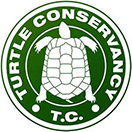Donations & Legacies
-
Principles
According to Article 893 of the French Civil Code, a liberality is the action by which a person gives , free of charge, all or part of his or her assets or his or her rights to the benefit of another person. Liberalities are possible only between living people or by will.
1.Gradual and residual liberalities
Gradual liberality (Article 1048 et seq. of the French Civil Code):
A gradual liberality is a donation or a legacy through a first person, the first done/legatee,who :
-
is in charge of keeping the asset
-
; and to pass it on at his or her death to a second person, the second donee/legatee.
This second done is already named by the donor who made a donation / legacy to the first donee.
In fact, only the second donee is considered as the actual donee. The first donee does not have any right to dispose of the assets given by the donor/testator.
Moreover, Article 784 C of the Tax Code (Code général des impôts), provides that the first donee/legatee shall pay the fees linked to the donation and the second donee / legatee shall in principle not pay any fees. In fact, at death of the donor/testator, the first donee / legatee pays the relevant taxes and fees according to the degree of kinship existing between the testator/donor and him or herself.
At death of the donee/ legatee, the mentioned assets are transmitted to the second donee / legatee. However, the taxes paid by the first donee/legatee benefit the second donee / legatee who may deduct these paid taxes accordingly from the taxes that he or she would have been liable to pay.
This could thus be a convenient way to pass on e.g. secondary residences at the Côte d’Azur to grand-children.
Residual liberality (Article 1057et seq.of the French Civil code):
A residual liberality is a donation or a legacy through a first person, the first donee/legatee,who :
is in charge of keeping the donated asset(s); and to pass the remaining part of the asset(s) at his or her death, to a second person, the second donee/legatee.
Also, in this case, only the second donee/legatee is considered as the actual donee/legatee.
However, the first donee/legatee has the right to dispose of the assets given by the donor.
Consequently, the first donee/legatee can even sell the given asset(s). The second donee/legatee will not have any right on the price; the second donee/legatee will only have the right to any remaining part of the assets given by the donor/testator.
As above, Article 784 C of the Tax Code applies also in this case.
2. Cash donations
According Article 7 90 G of the Tax Code (Code général des impôts) children, grandchildren, a great grandchildren or, in lack of such descent, nephews or nieces, grand nephews or grandnieces may be granted cash donations up to the amount of 31 865EUR every fifteen years exempt of transfer fees.
This exemption is subject to the following conditions:
the recipient is at least 18 years old or emancipated at the day of transmission.
since 31 July 2011, the donor must be aged less than 80 years old, regardless of the quality of the recipient.
This exemption is not ably cumulative with rebates provided under points I and V ( respectively donations to children and to nieces or nephews) of
Article 779 and in
Articles 790 B (donations to grand-children) and 790 D (donations to great grand-children) of the Tax Code.
Moreover, according to Article 784 of the
Tax Code, cash donations made since at least 15 years are not taken into account. If the donation is not certified in a deed, the donation must to be registered within a month following the release of the funds under form nr 2731.
3. Donation of property that has been returned to the donor
Article 791 ter of the Tax Code together with the
Doctrine of the Tax Administration (BOI-ENR-DMTG-20-30-20-60)provide that where the donee (direct desendant) passes away and where the asset(s) goes back into the patrimony of the donor, either based on the legal right of return of the father and the mother (Article 738-2 of the French Civil Code) or the contractual right of return (Article 951 and 952 of the French Civil Code), the donor can either: redonate,to another direct ascendant,the asset “tax free”, without any tax payments within 5 years, date to date,as from the day the asset returned to the donor ; or ask for the restitution of the taxes paid for the donation before 31 December the second year after the asset returned to the donor.
4. Deadline of the tax recall concerning donations
According to Article 784, second subparagraph of the Tax Code,and since 17 August 2012,Tax Administration may reintegrate a donation within the tax base of a succession where the donation was not made since more than 15years.
Consequently, if a donation was made less than 15years ago, it will be reintegrated in the tax base for the succession. There is no smoothing mechanism, i.e., no proportionality mechanism is applied.
II.
Duty rebate Since July 31, 2011 the tax deductions based on the age of the don or do not exist anymore. <However, according to Article 790 of the Tax Code a deduction of 50% applies for the transmission in full ownership of the companies within the family when the donor is under 70 years of age and where certain conditions are met.
III.
Passing on companies Heirs, legatees or donees may benefit of an exemption on the transfer taxes free of charge up to 75% of the value on the shares of a company with industrial, commercial or artisanal, agricultural, professional activity transferred among living or by will, or on a ll or an indivisible part of the whole of movable or immovable property , tangible or intangible property allocated to the exploitation of an individual company with an industrial, commercial, artisanal, agricultural or professional activity transmitted by death or between living people under the respect of :
I.
Preliminary conditions linked to the duration of detention of shares / an individual company by the donor : collective commitment to keep a certain amount of shares (between 20% and 34%) for 2 years; or to the detention of an individual company for at least 2 years.
II. The condition linked to an individual commitment of the heir, donee or legatee to keep the shares or the assets needed for the operations of the company during four years.
III.
Condition linked to the commitment to pursue the activity during three years :
Where shares are transmitted: one of the associates who signed the collective commitment or one of the heirs, donees or legatees who signed the individual commitment, must exercise, during the duration of the commitment and during three years after the transmission of the shares :
-
either his or her professional activity in a limited partnership; or
-
when the company is subject to corporate taxation, one of the executive functions among those listed in Article 885 O bis 1° of the Tax Code.
Where an individual company is transmitted: one of the heirs, donees or the legatees must pursue the activity during three years since the transmission.This partial exemption up to 75% can combined with the fees deduction of 50% applicable to the donations of the shares in full ownership when the donor is under 70 years of age and all the conditions described above are met.
fichier à telecharger:
 LIBERALITIES – DONATIONS AND LEGACIES_2014-07-07
LIBERALITIES – DONATIONS AND LEGACIES_2014-07-07





